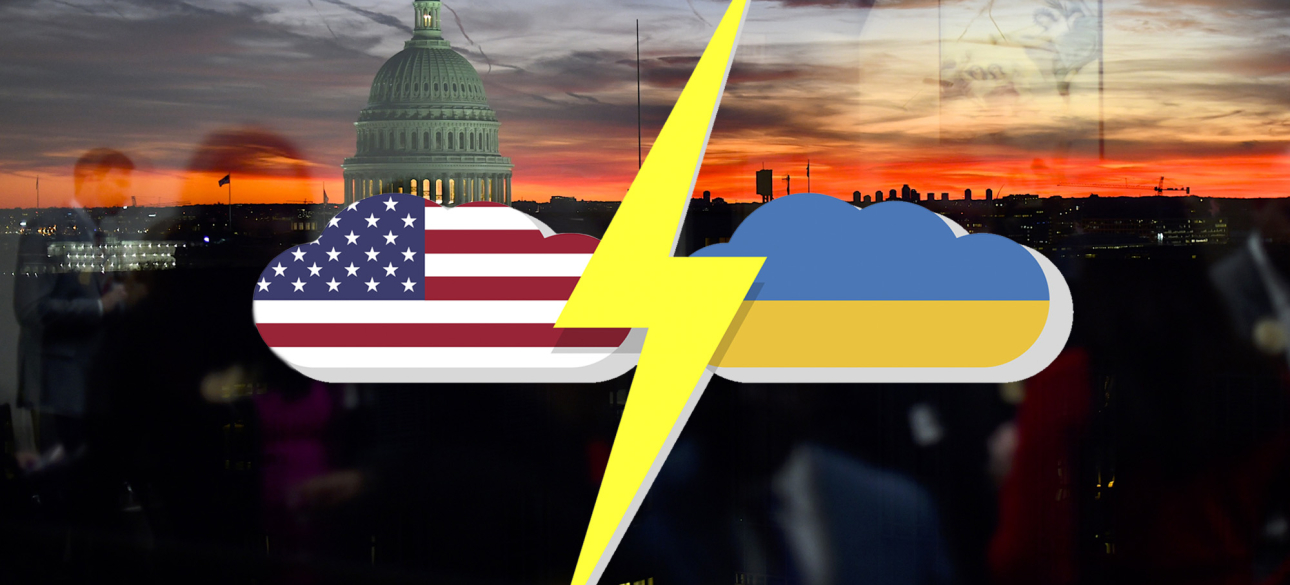In a column for The Hill, the third and fifth US ambassadors to Ukraine, Steven Pifer and John Herbst, talk about their impressions of their recent visits to Kyiv. They were surprised by the resilience of Ukrainians, but most importantly, they learned about the claims to what their country is doing.

Last week we had the opportunity to visit Kyiv and we met with many Ukrainians both inside and outside the government. We found that they were, for obvious reasons, tired of the war, but determined to continue the fight, believing that they would be able to defeat and drive out the Russian aggressors. We also heard growing discontent with their most important partner, the United States.
In February 2022, Vladimir Putin launched a full-scale invasion of Ukraine, turning the Russian-Ukrainian war into the largest and bloodiest in Europe since World War II. No one should be surprised that Ukrainians are tired of sending their husbands, sons, wives and daughters to the front lines for months.
Meanwhile, Russian missile and drone attacks are waging war on civilians in cities across the country. The night attack on Kyiv on March 20-21 was the most powerful in the last few months. We spent most of that night in a bomb shelter, an experience all too familiar to millions of Ukrainians.
At the same time, none of the former intentions weakens. Ukrainians want to win and believe they can. Indeed, they see no alternative in what they consider an existential struggle; if they lose, there will be no Ukraine as they knew it. Most of them want a total victory, meaning the full restoration of their territory to the borders agreed upon when the Soviet Union collapsed in 1991. This includes the return of Crimea.
We asked about proposals put forward by some in the West — that the United States should push for talks to "save" Ukraine by ceding part of the country to Russia in exchange for peace. Few Ukrainians showed interest in this. They pointed to the war crimes that Ukrainians suffered during the Russian occupation and asked how they could abandon someone at will. Most also believed that this would lead to only a brief respite, after which the modernized Russian army would resume fighting.
The Ukrainian military understands that 2024 will be a difficult year. They talked about Russian pressure on most of the front line, especially in the Donetsk and Luhansk regions. In September 2022, Putin announced that he would annex these regions, although the Russian military does not control all of their territory.
The slowdown in aid, especially from the US, has harmed Ukrainian military operations. Ukrainian officers described situations in which their units could fire only one artillery shell for every ten shots fired by the Russians. They have no means of protecting themselves against devastating strategic bombing attacks by Russian fighter jets, and they worry that sustained attacks by Russian missiles and drones will exhaust air defense capabilities.
Ukrainian Defense Ministry officials are monitoring Russia's plans to create new combat formations and the likely mobilization of manpower now that Putin has secured a further stay in power. They believe that the Kremlin maintains broader ambitions in Ukraine, including the seizure of Kharkiv, Odesa and Kyiv.
Despite this, Ukrainian officials show no signs of despair. They are strengthening their defense positions and rushing to deploy innovative technologies on the ground, such as advanced drones. They wonder if the Russians now have the ability to make a major breakthrough on the ground. Many Ukrainians are still confident that, with enough weapons and ammunition, they will be able to roll back Russia's gains over the past two years.
First, since NATO plans to hold a summit in Washington in July 2024, Ukrainians want a clear message about their acceptance into the Alliance, and ideally an invitation. They pay special attention to the fact that the United States has the most important voice in NATO. Of course, Ukrainians are fighting for the survival of their country, but they also see in this struggle the protection of NATO and Europe from the Russian threat, which goes beyond the borders of Ukraine.
Second, the inability of Congress to pass a bill on additional aid to Ukraine caused a gap in the flow of American aid, which affected the battlefield. This is reflected, in particular, in the increase in losses among Ukrainians. Ukrainians have become aware of how the House of Representatives works, in particular, the role of the speaker and petitioners, but their disappointment is palpable.
Third, US national security adviser Jake Sullivan visited Kyiv last week and left Ukrainians visibly displeased with his request to stop attacks on oil refineries in Russia. Ukrainians, with some annoyance, accept restrictions on the use of US-provided weapons for purposes on the territory of Ukraine. Anyway, Ukraine uses domestically produced drones to attack Russian oil refineries, which are legitimate military targets. So far, they have struck facilities that produce seven to eight percent of Russia's petroleum products, and many others are within range of Ukrainian drones.
There are questions about the justification for calling for an end to attacks on oil refineries, which were reportedly linked to oil prices. Russia mostly exports crude oil, not petroleum products; therefore, it is not clear how the reduction in the capacity of Russian refineries will affect oil exports. As one high-ranking Ukrainian official put it, "stop telling us not to hit targets in Russia."
We left Kyiv inspired by the resilience, courage and unwavering conviction of Ukrainians that they can defeat one of the largest military powers on the planet. The United States has a vital national interest in Ukraine's success. If Putin and the Kremlin were inspired by the victory in Ukraine, they would pose a much greater threat to the rest of Europe. The Biden administration and Congress must act without delay to help the Ukrainians win.

